
A man with stomach pain (Photo by derneuemann on Pixabay)
EdNews compiles lists of consensus picks featured on credible review sites. We aim to lay out top consumer research finds for you by bringing expert rankings to one place.
Feeling like a hot air balloon after that extra-large burrito? Fear not, bloated warriors, because we’re diving into the world of teas that could deflate even the most impressive food baby! Let’s find you a tea that’ll have you feeling as light and airy as a dandelion seed caught in a summer breeze. From soothing peppermint to zesty ginger, these teas are your ticket to kicking bloating to the curb and saying goodbye to feeling like the Michelin Man’s understudy. EdNews reviewed 10 expert websites to find the top five best teas for bloating that aid in relieving any discomfort. Have any to add? Please let us know in the comments!
Table of contents
The List
1. Peppermint Tea
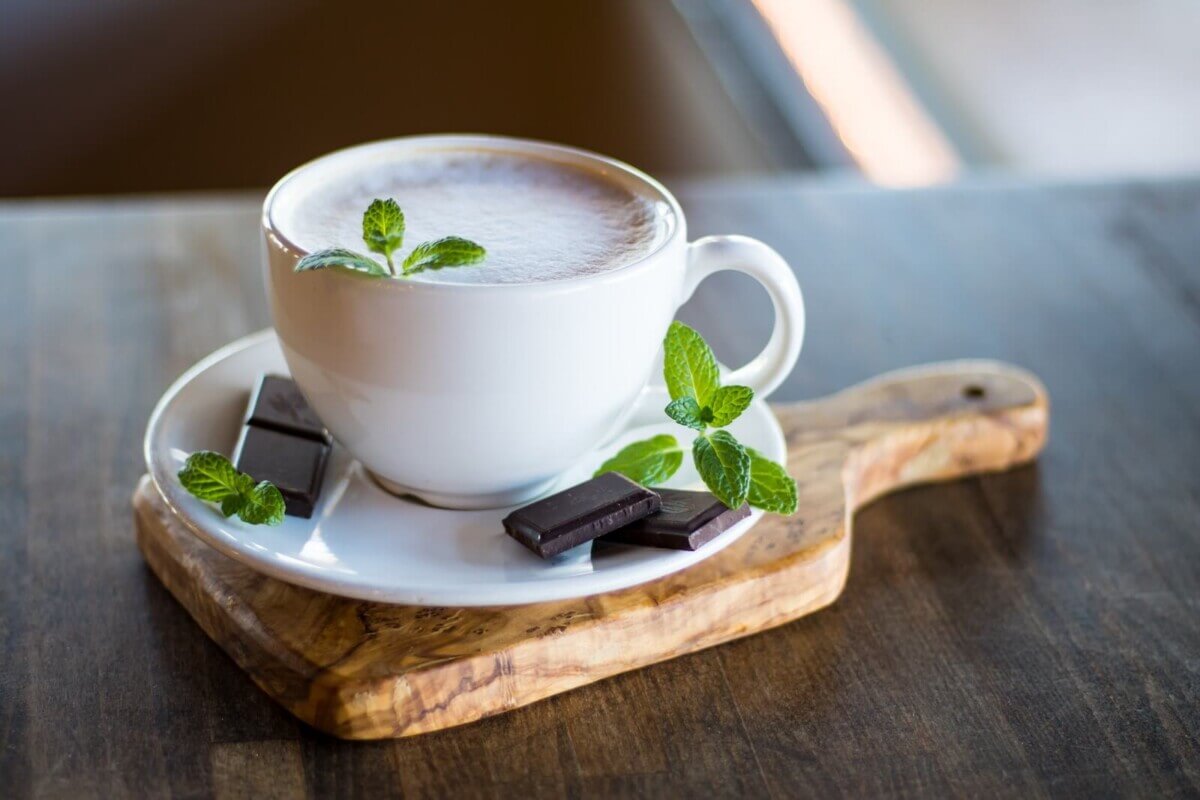
Hopefully, you like the taste of candy canes because ranking number one in the list of best teas for bloating is peppermint. “Peppermint is one of the most widely available herbal teas. Peppermint has anti-spasmodic properties, so it’s useful to soothe bloating due to cramping. A 2011 study found certain compounds in this plant (such as menthol), which can generate a pain relief response in the gut and are useful for IBS-related bloating. However, peppermint isn’t recommended if you suffer from acid reflux or indigestion,” says Happiness.
“Peppermint is a vibrant green herb that is easy to grow. You can brew this tea with fresh or dried leaves and easy to find either option in your grocery store. Peppermint can also be taken as an encapsulated essential oil, which is how some of the studies choose to investigate the potential medical properties of peppermint,” adds Belly Bliss Nutrition.
“Similar to ginger, peppermint is also an intestinal relaxant. It’s wonderful for nausea as well. Peppermint works by allowing everything from swallowed air to built-up gas to pass through the intestines more easily. It’s also one of the best teas for bloating because of its high concentration of flavonoids (these help calm the bacteria),” shares Camille Styles.
2. Ginger Tea
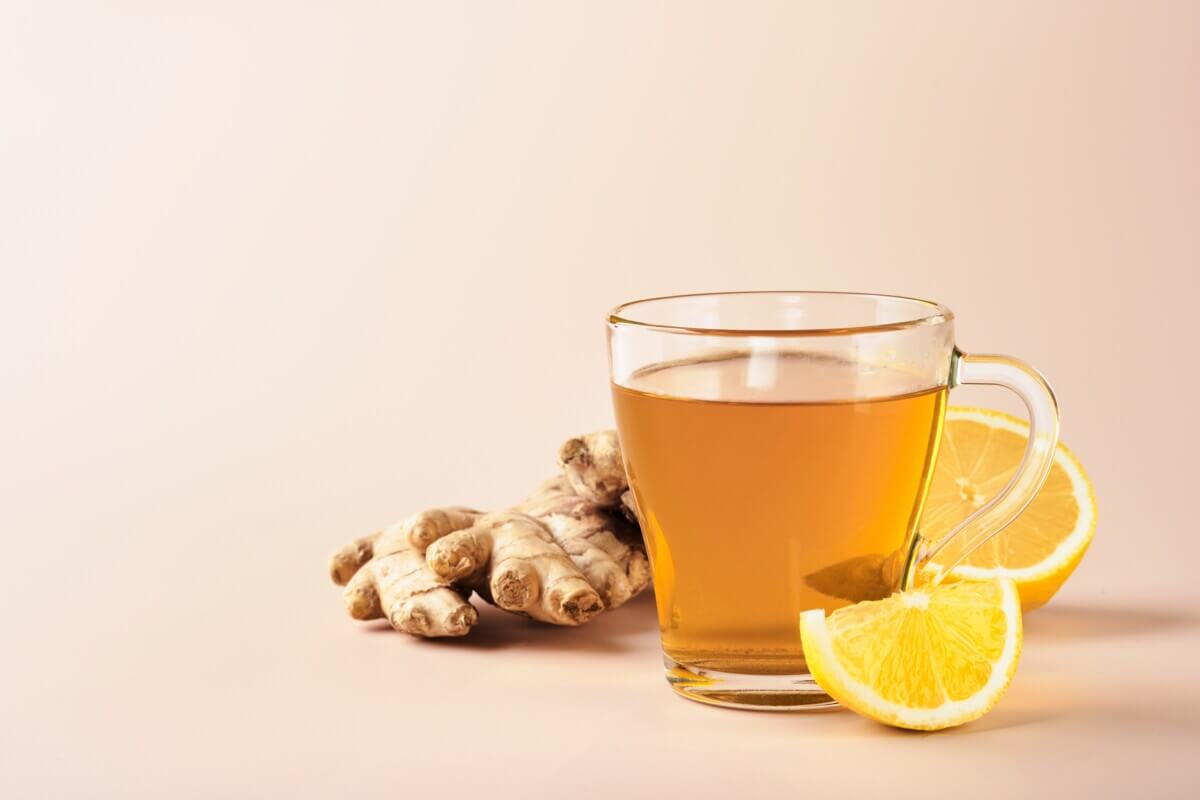
Ginger contains enzymes that keep fluids and food moving along the digestive system. “Studies show that ginger increases stomach emptying. As someone who has struggled with bloating for years, I find myself reaching for fresh ginger root every time I feel the bloat. For me, ginger tea truly is the most effective tea for bloating as it always seems to soothe my swollen stomach. However, ginger may not be suitable for people whose bloating is caused by stomach ulcers, so bear that in mind,” says Happiness.
“If you bloat like a bear during your periods, ginger tea is your go-to cuppa. Plus, it will also help in relieving cramps and other PMS issues,” writes Hindustan.
“Ginger is a rhizome, a specialized sort of root that has many medicinal properties, not to mention a delicious taste. You can find fresh ginger in your produce section of the grocery store; it looks a bit like a hand with papery skin on it and many-branched ‘roots.’ You can also find ginger as a dried powder in the spice aisle, pureed and packaged in a jar, pickled, or as a tea,” states Belly Bliss Nutrition.
3. Chamomile Tea
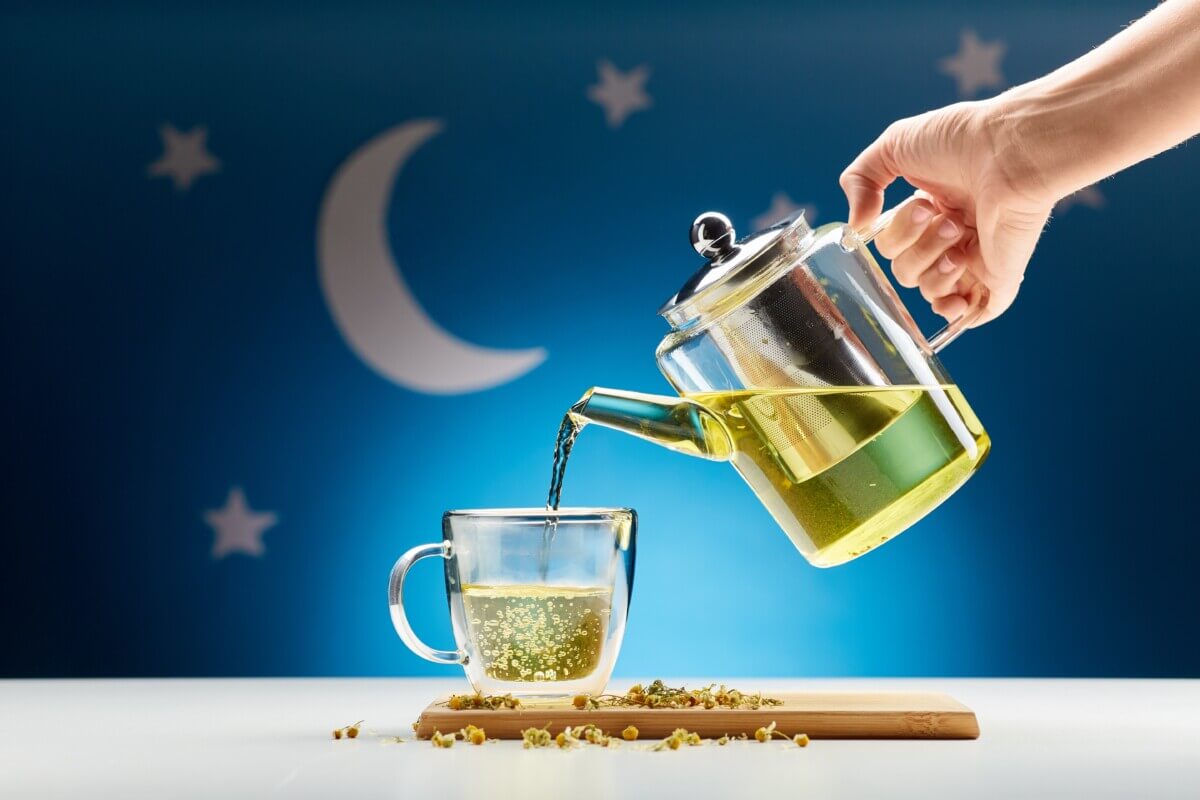
Chamomile tea is known for its medicinal value. “Chamomile tea is safe for most digestive conditions and has an anti-inflammatory and anti-spasmodic effect, as it can lower stomach acidity,” says Happiness.
“Chamomile can be fantastic for digestion and promoting relaxation. These small flowers have been shown in studies to decrease levels of harmful bacteria via its antiseptic qualities as well as soothe abdominal pain. Any time of day is a good time to have chamomile tea. However, due to its relaxing properties, it’s great to reduce bloating and relax your body for a good night's sleep. We highly recommend our Anti-anxiety for a completely restful evening,” explains Yum Cha Tea Company.
“Chamomile tea is a delightful option for digestion, wellness, and promoting relaxation. Small but mighty chamomile flowers are known to decrease levels of bacteria, soothe abdominal pain, prevent diarrhea, and decrease gas. Enjoy chamomile tea for a bloated or upset stomach as well as to aid in a better night’s sleep,” adds Camille Styles.
4. Lemon Tea

Lemon balm is strong in triterpenes and has a pleasant flavor similar to licorice. “The European Medicines Agency reported that it can effectively treat gas, bloating, and slow digestion. Lemon balm is regarded as the finest tea for bloating in traditional Iranian medicine because of its strong antioxidant content, which might improve digestive health,” shares Medicine Net.
“If you think that lemon is all about cutting fat, you are sadly mistaken because if you want to reduce bloating, you should lean on lemon before anything else. And if we talk about science, then according to a study published in the European Medicines Agency, lemon is capable of curing digestive issues, and it helps in taming bloating as well,” says Hindustan.
“Citrus fruit of all kinds including lemon may help alleviate discomfort in the digestive system such as bloating and gas. Lemon tea has also been shown that it can increase normal digestive movements,” writes Yum Cha Tea Company.
5. Fennel Tea
With a mild aniseed taste, fennel is another traditional remedy for gas and bloating. “Indeed, it’s often found in herbal remedies aimed at colicky babies. Fennel helps to relax the muscles of your GI tract, allowing trapped gas to pass more easily,” says Nutra Tea.
“Fennel seeds have a similar taste to licorice and have long been used to aid in positive digestive health. Fennel is known to decrease constipation, bloating, gas, and abdominal pain. At Art of Tea, we recommend our Wellness Mood Boosting Tea made with organic fennel to ease your discomfort and soothe your digestive tract,” shares the Art of Tea.
“If you haven’t tried fennel seeds, they taste similar to licorice and have long been used to aid in digestive health. According to herbalists, fennel is known to decrease constipation and abdominal pain. It can help muscles of the gastrointestinal system relax and reduce gas, bloating, and stomach cramps,” says Camille Styles.
6. Green Tea
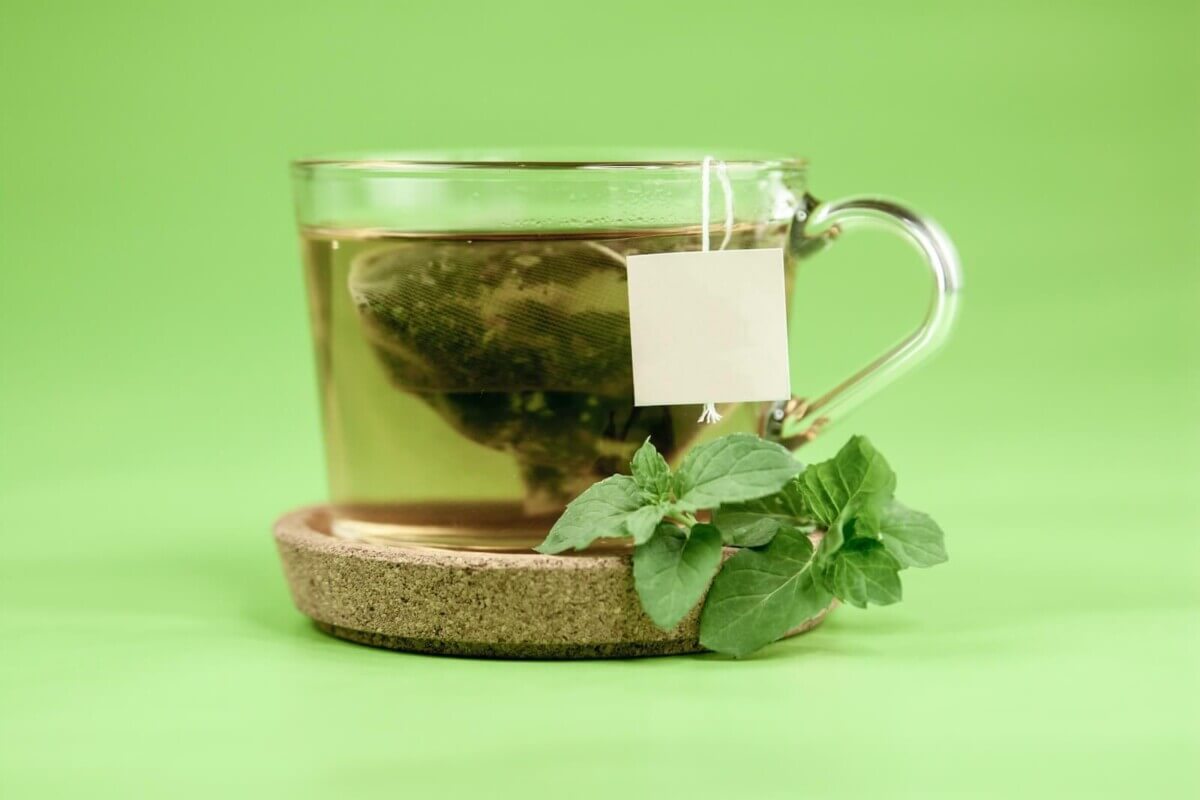
Green tea is known to accommodate many issues including natural energy, help with weight loss, and is a skincare wonder, so there’s no surprise it also helps with bloating. “Add anti-bloating properties to the already-long list of benefits; green tea's catechins help soothe the GI tract and help your stomach digest food more efficiently. It's a total bloat-blocker,” states Byrdie.
“Green tea provides natural energy, aids in weight loss, and is a skincare marvel. Green tea's catechins help soothe the GI tract, speed up digestion, and alleviate bloating,” says Medicine Net.
“Green tea can be a great detox tea for weight loss and bloating. It contains catechins and antioxidants that can promote fat breakdown, increase fat oxidation during exercise, and boost metabolic rate to burn more calories. Additionally, drinking green tea may aid digestion and reduce bloating,” adds Mylo Family.
7. Turmeric Tea
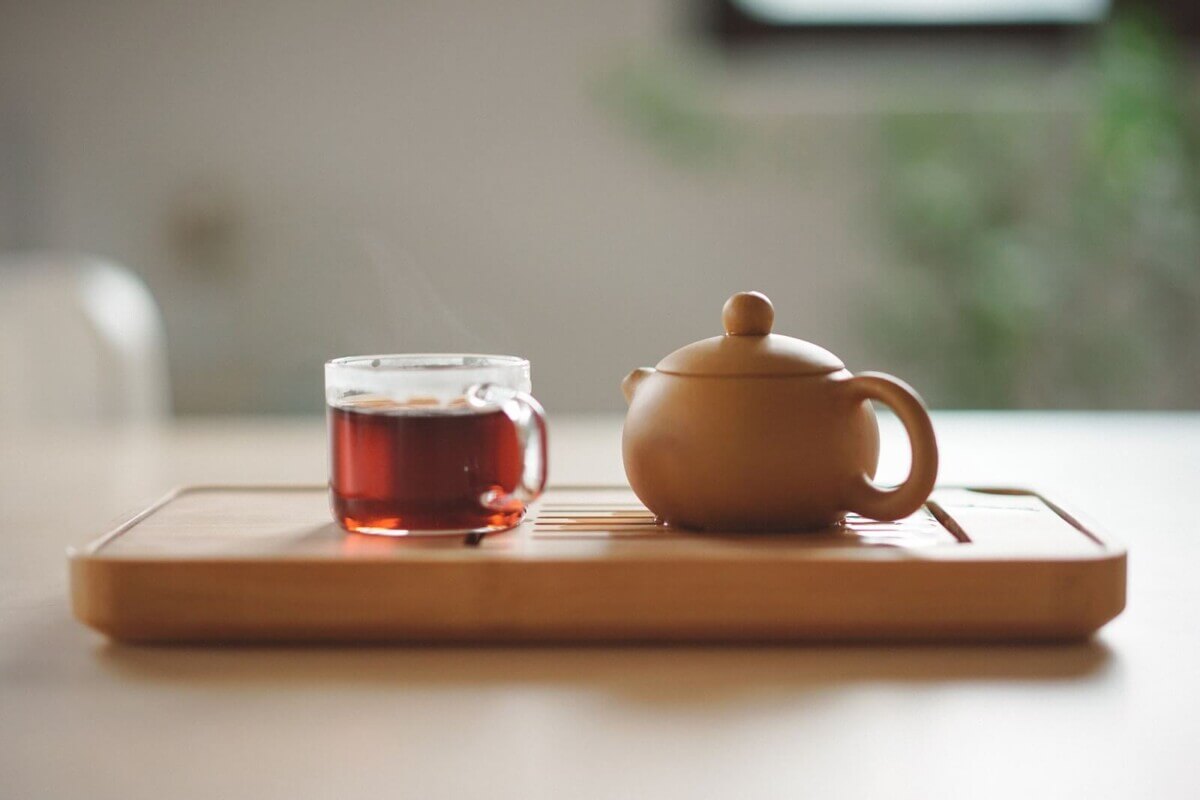
Turmeric is a bold yellow spice with a pungent, bitter flavor. “It’s been found to have potent inflammation-fighting and gas-relieving properties. It’s been incorporated in traditional Chinese medicine to treat abdominal pain and bloating, according to a 2016 review in Electron Physician,” states Camille Styles.
“Similar to ginger, turmeric is a rhizome root that can be purchased fresh, dried, and powdered, as a tea, as well as in the supplement aisle as a capsule. Turmeric is very bright yellow in color and is the star of curry mixtures. It has an earthy, peppery flavor,” says Belly Bliss Nutrition.
“Has a strong, bitter flavor. According to a 2016 review in Electron Physician, turmeric has strong anti-inflammatory and gas-relieving qualities and has been utilized in traditional Chinese medicine to alleviate gastrointestinal pain and bloating,” adds Medicine Net.
Sources used to create this consensus list
- Happiness
- Hindustan
- Belly Bliss Nutrition
- Camille Styles
- Medicine Net
- Nutra Tea
- Byrdie
- Mylo Family
- Yum Cha Tea Company
- Art of Tea
Note: This article was not paid for nor sponsored. EdNews is not connected to nor partnered with any of the brands mentioned and receives no compensation for its recommendations. This article may contain affiliate links in which we receive a commission if you make a purchase.










